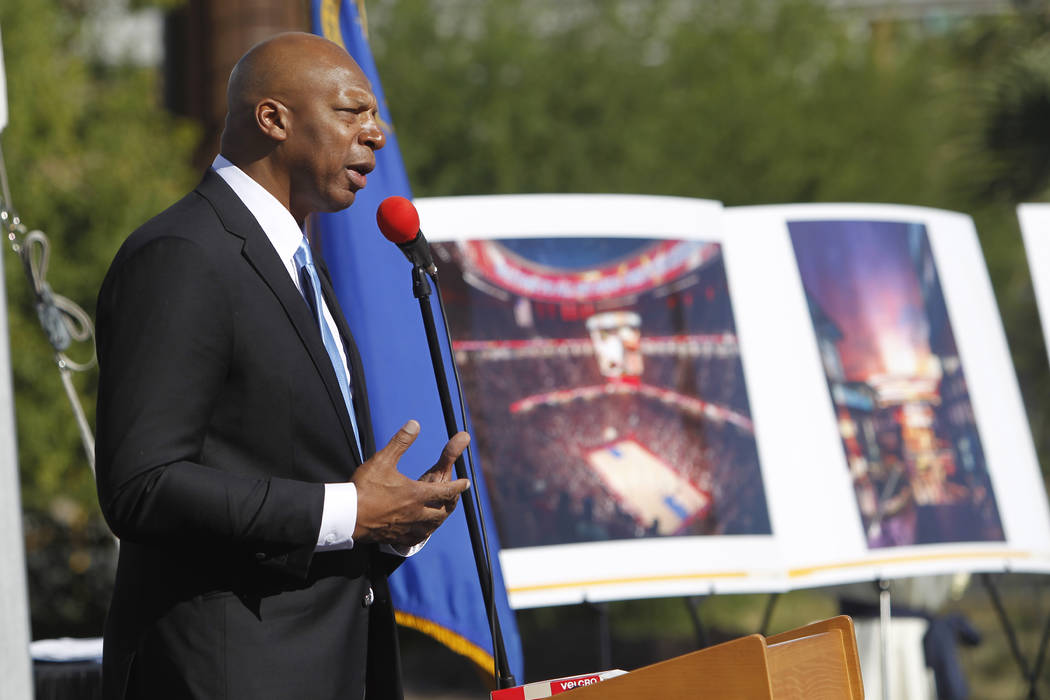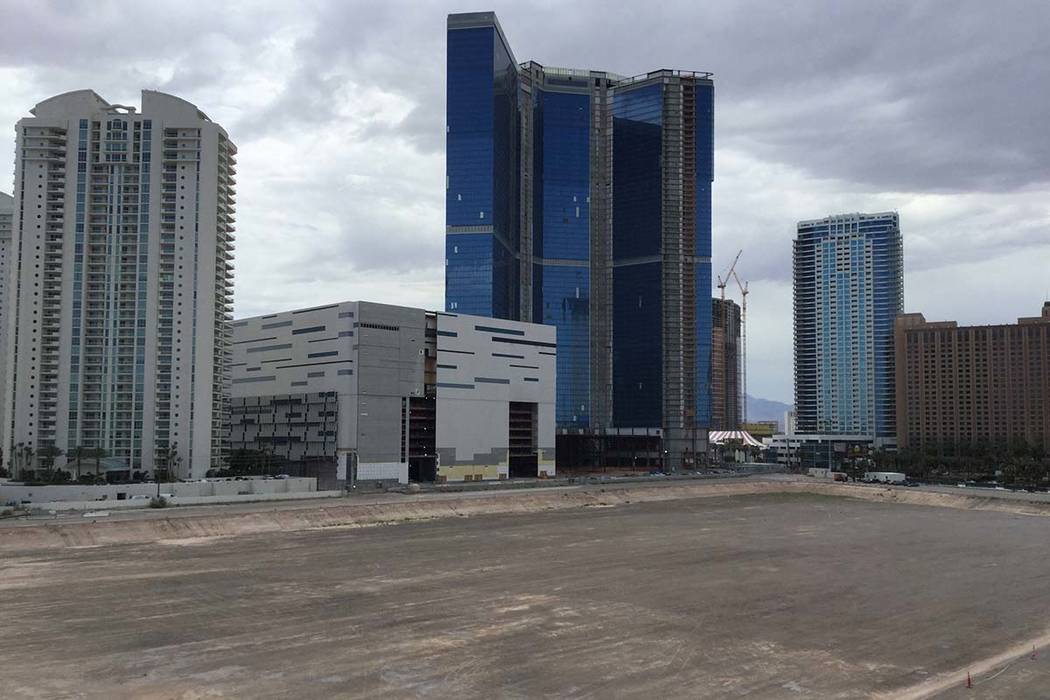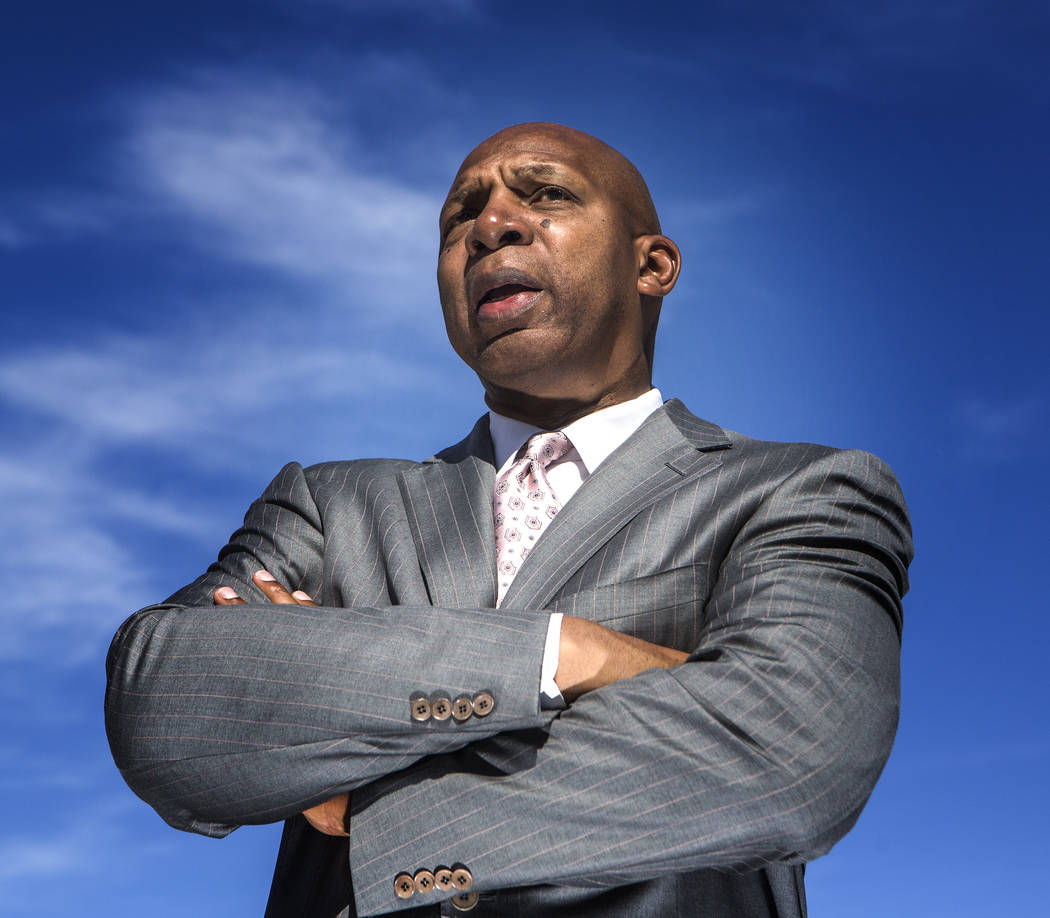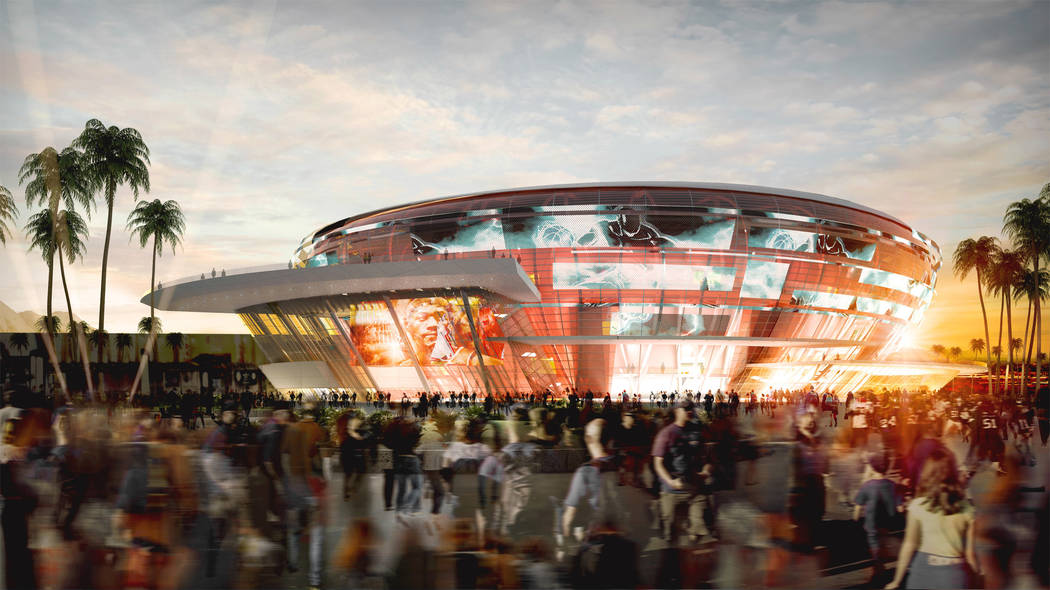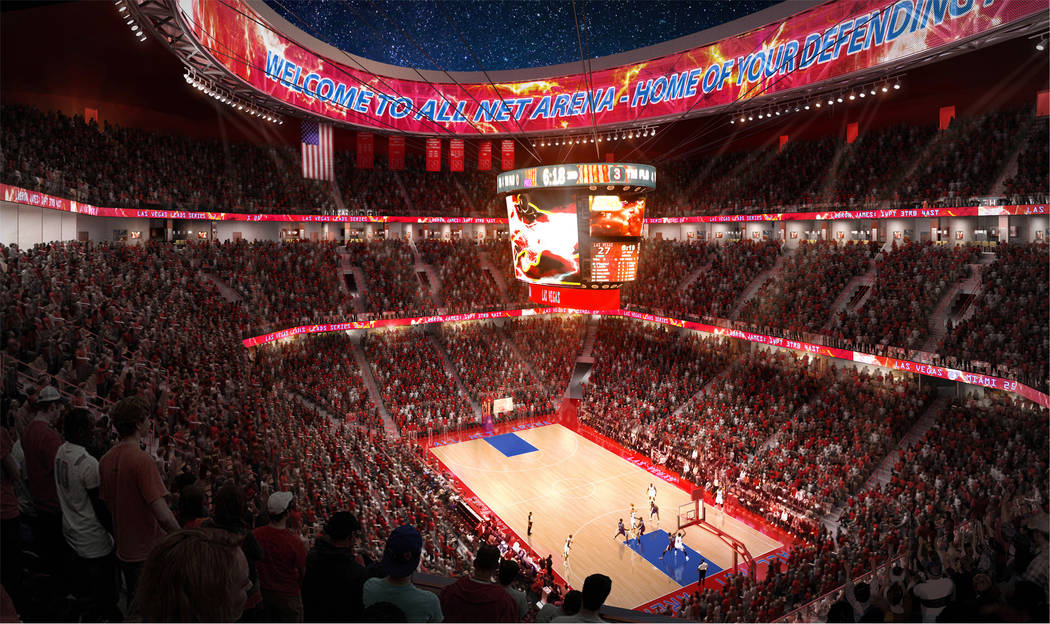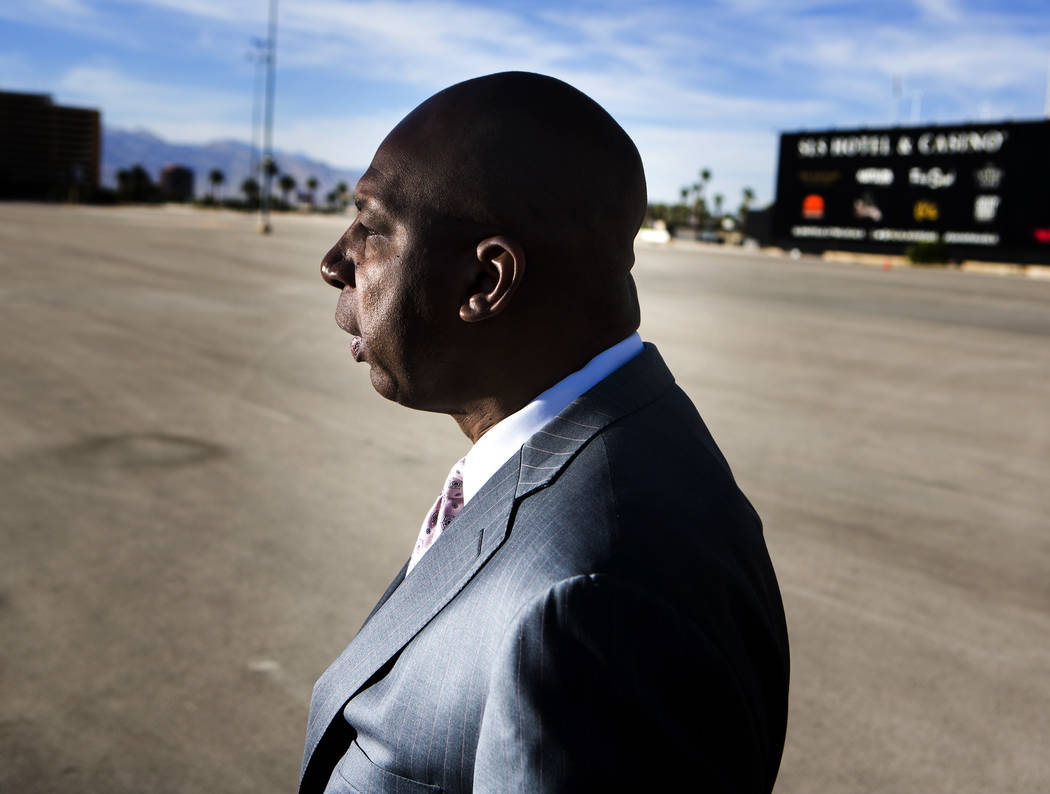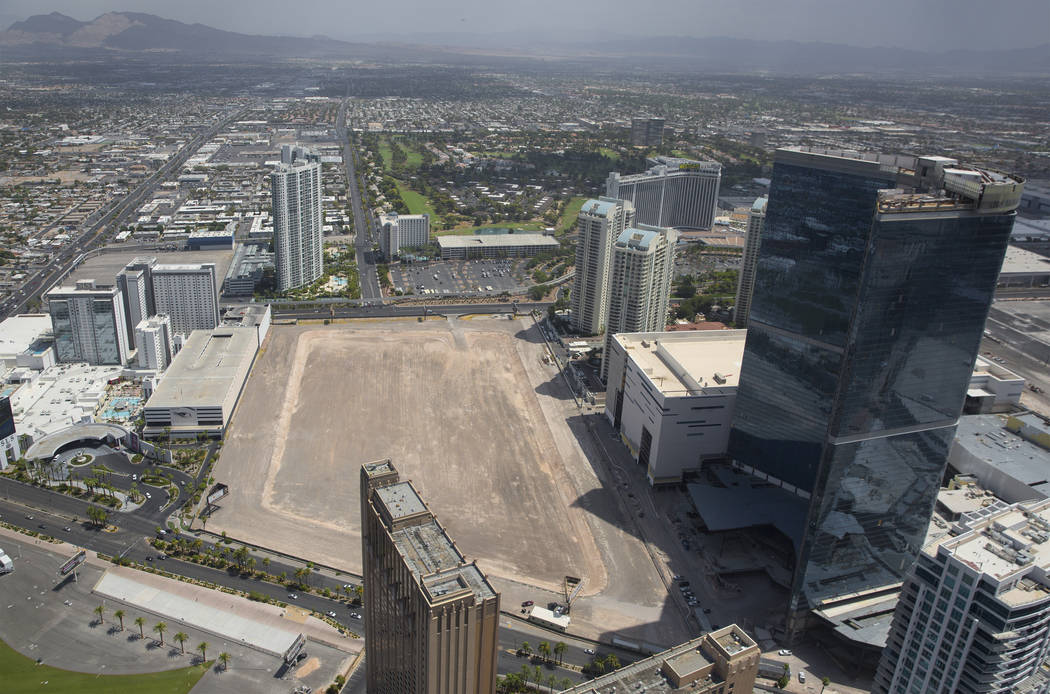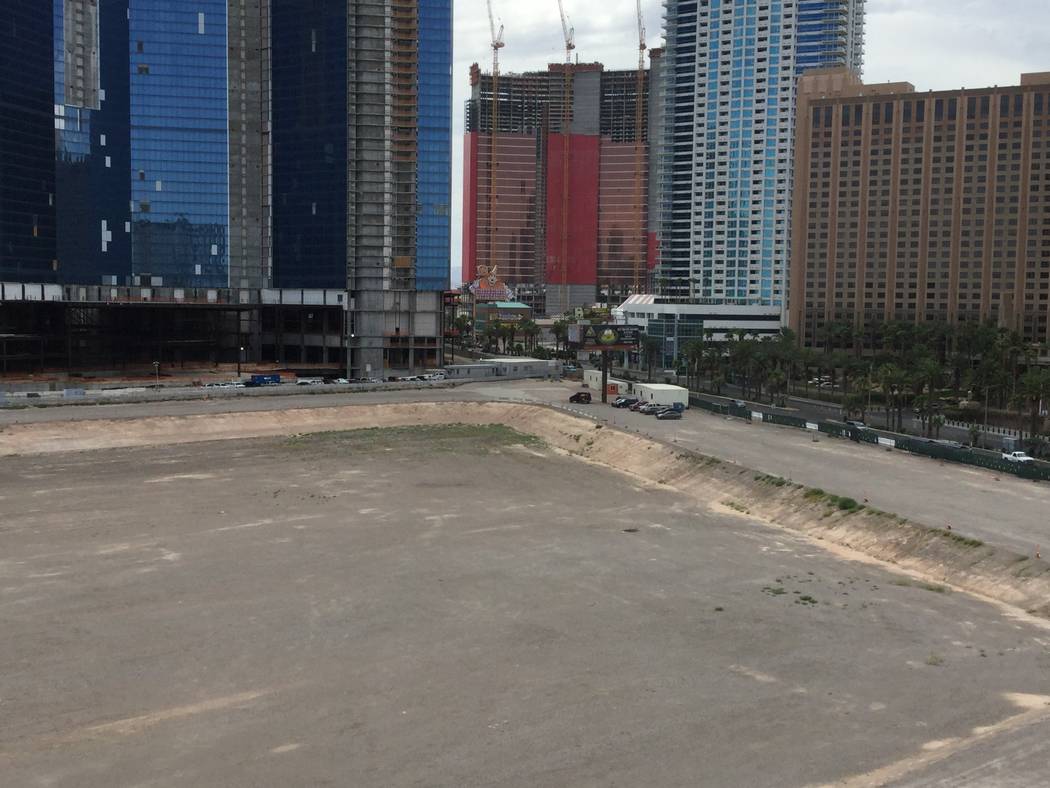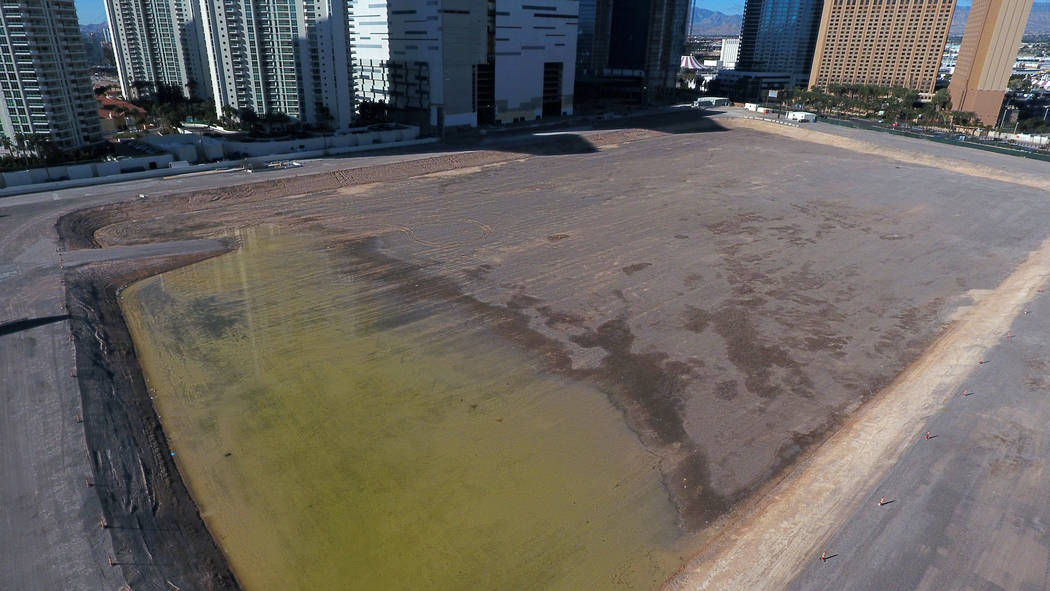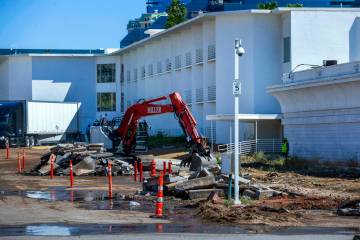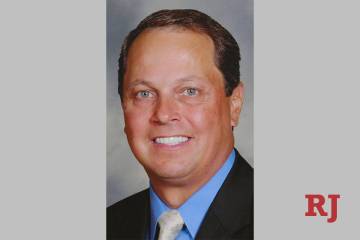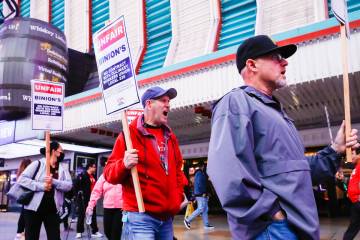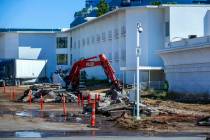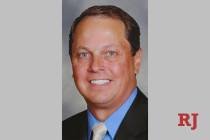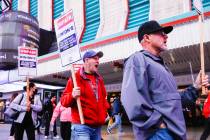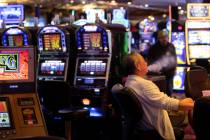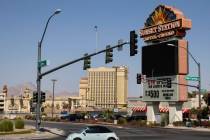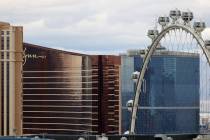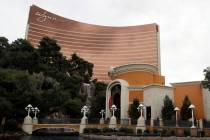Jackie Robinson ‘1,000%’ committed to Las Vegas Strip arena, hotel project
Walking the north end of the Strip offers close-up views of the under-construction Resorts World Las Vegas, the unfinished former Fontainebleau and other high-rises.
If all went according to plan, visitors — by now — would also see an arena with a retractable roof and a five-star hotel developed by ex-NBA player Jackie Robinson. But more than five years after he announced the project, his construction funding is not finalized yet, and his fenced-off site consists of a giant hole in the ground with no signs of activity.
“Seriously, we can’t just let it keep going on,” Clark County Commissioner Tick Segerblom, whose district includes the property, told Robinson at a May public hearing.
Hotel and finance professionals told the Review-Journal a project of this size and complexity can be difficult to finance, especially for a developer who — like Robinson — lacks a portfolio of similar projects and would be a solo operator on the Strip competing against powerful casino chains.
Robinson’s 27-acre project, which expanded in scope nearly two years ago, calls for an arena with up to 23,000 seats, 44-story and 63-story nongaming hotels, conference space, restaurants, a bowling alley, a movie theater and more, county records show.
The cost, he said Thursday, is nearly $3 billion — and he is “1,000 percent” committed to building it.
Moving billions of bucks
Robinson’s project site, former home of the Wet ’n’ Wild water park, is between the SLS Las Vegas and the former Fontainebleau, now the Drew Las Vegas. He initially planned to finish the development in late 2016 but started excavating the site in 2017 and has shown no further progress.
After receiving complaints of accumulated rain water at the property, the Southern Nevada Health District set traps in early May and captured 154 mosquitoes, according to district spokeswoman Jennifer Sizemore.
Robinson, 64, appeared before the County Commission in May and June and outlined how he would pay for the stalled project. He described a complex plan involving money in Qatar, people in Zurich, central banks in Europe and the U.S., lines of credit, funds moving from one bank to another, and state of Nevada revenue bonds. He also said his group had invested more than $37 million.
Moving a few billion dollars into the U.S. is “a process,” Robinson told commissioners, “and if you haven’t been through it, I can tell you it’s something that you don’t want to go through and experience.”
He told the Review-Journal on Thursday he is in the “final stages” of his loan and has the ability to “complete the project in full.”
‘Small universe’
Hard Rock Hotel CEO Richard “Boz” Bosworth, whose group plans to turn the off-Strip resort into a Virgin-branded property in a $200 million-plus overhaul, said Robinson’s project is still viable. He noted the now-scrapped Alon casino project next to Fashion Show mall had a “who’s who of talent” — its leadership included Australian billionaire James Packer and former Wynn Las Vegas President Andrew Pascal — but even that “couldn’t get financed.”
Bosworth said there’s a “small universe” of lenders and investors for projects as large as Robinson’s. The pool is even smaller for projects in Las Vegas, he said, where resorts tend to be heavy on amenities, making them costly and more complex.
Plus, as other large ventures obtain funding, it becomes more difficult for the remaining ones “to come out of the ground,” he said.
Ivan Ferraz, commercial banking leader for Nevada at financial giant Wells Fargo Bank, agreed with the notion that bigger, pricier projects are tougher to finance, saying they are riskier ventures.
Plus, one criterion when evaluating a proposal is the developer’s experience with similar projects. If it’s the developer’s first time doing one, “we’re probably not” going to back it, Ferraz said.
Robinson’s business background includes the launch of a construction contracting firm, and he set out years ago to develop a multibillion-dollar project on the south Strip called Elysium. It was never built.
He has also owned a minor-league basketball team in Las Vegas, shops at McCarran International Airport and 67 Pizza Hut locations in the San Diego area, he confirmed.
Investment banker Viney Singal, founder of Las Vegas-based Valtus Capital Group, said it’s possible for a developer without a big portfolio of assets to finance a massive project, but it would be harder for them than it would be for a large company with numerous hotels to its name.
Robinson agreed with that notion. He also pointed out he wants to build a mixed-use, nongaming entertainment complex.
“There’s no other property on the Las Vegas Strip that’s doing what we’re doing,” he said. “None.”
‘Enough’s enough’
Las Vegas has seen tremendous changes since the former UNLV player unveiled his plans in late 2013. While his project stayed largely idle, developers flooded the valley with houses and apartments, T-Mobile Arena was built just 3 miles from Robinson’s site, Alon came and went, the Fontainebleau was sold, and the Raiders started building a football stadium.
Robinson’s architect, Brett Ewing, gave an overview of his client’s project to the County Commission in June with a site plan that still showed the Riviera, which was imploded in 2016.
“Things have changed,” Ewing told commissioners. “Very dynamic neighborhood.”
Segerblom told the Review-Journal he thinks Robinson has a “great project,” and he praised the former basketball player as a nice guy who is “acting in good faith” to build it.
“But at some point you have to say enough’s enough,” Segerblom said.
Robinson said his approach is to “be patient and do it right.” Also, lenders and others involved with the project are not turning back.
“We’re all way past that point,” he said.
Contact Eli Segall at esegall@reviewjournal.com or 702-383-0342. Follow @eli_segall on Twitter.
Jackie Robinson's project timeline
December 2013: Robinson announces plans for $1.3 billion project with arena, 500-room hotel, retail and restaurants
August 2014: Clark County Commission approves project plans
October 2014: Robinson holds ceremonial groundbreaking
March 2017: Excavation work starts
October 2017: County commission approves expanded plans; Robinson says project will cost about $2.7 billion, aims to finish by spring 2020
August 2019: Project site still consists of big hole in the ground
Related
Las Vegas hotel construction has spotty record since recession



